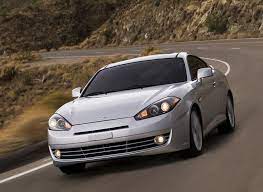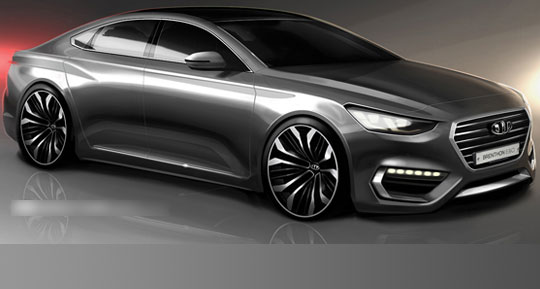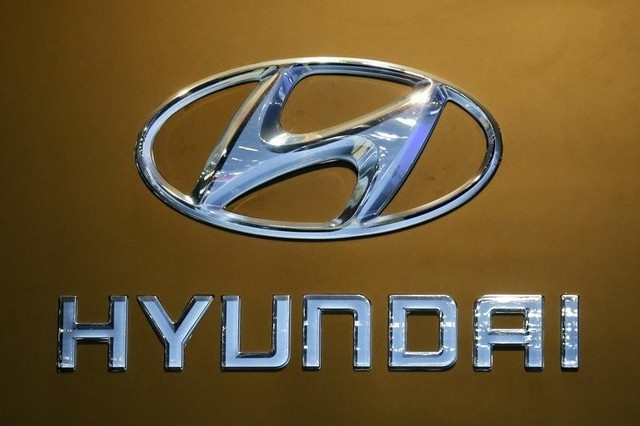Hyundai Motor Company is a South Korean automotive manufacturer known for its global presence and a wide range of vehicles. Established in 1967, Hyundai has become one of the largest and most successful automobile manufacturers in the world.
Here are some key points about Hyundai:
Hyundai started as a small construction company and later expanded into the automotive industry. The company’s first car, the Hyundai Pony, was introduced in 1975.Hyundai operates in over 190 countries and has a significant presence in major markets, including the United States, Europe, and Asia.Hyundai offers a diverse lineup of vehicles, including compact cars, sedans, SUVs, and even luxury models through its Genesis brand. Some popular models include the Hyundai Sonata, Hyundai Elantra, Hyundai Tucson, and Hyundai Santa Fe.
Hyundai has gained a reputation for producing high-quality, reliable vehicles that often come equipped with innovative features and technology. They have made significant advancements in safety technology, hybrid and electric vehicles, and fuel efficiency.Hyundai is known for producing affordable vehicles that provide good value for the money. This approach has helped them attract a wide range of customers.
Hyundai has also been actively pursuing sustainability and green initiatives. They have invested in electric and hydrogen fuel cell technology and are committed to reducing their environmental impact.Over the years, Hyundai has received numerous awards and accolades for its vehicles, design, and safety features, which have contributed to its reputation as a respected global automaker.
In addition to the Hyundai brand, the company owns the luxury brand Genesis and a stake in the Kia Corporation. These brands complement the Hyundai lineup and offer vehicles catering to various market segments.
Hyundai is involved in various social and community programs, demonstrating a commitment to corporate social responsibility.

History of Hyundai automobile company:
The history of Hyundai Motor Company is a story of rapid growth and transformation from a small South Korean construction company to one of the world’s largest and most influential automotive manufacturers. Here’s an overview of the key milestones in the company’s history:
- 1967 – Foundation: Hyundai Motor Company was officially established in 1967 by Chung Ju-Yung, a South Korean entrepreneur. At the time, it was a subsidiary of the Hyundai Engineering and Construction Company.
- 1975 – First Car, the Hyundai Pony: In 1975, Hyundai introduced its first car, the Hyundai Pony. This compact car marked the company’s entry into the automotive industry. It was designed with the assistance of George Turnbull, a former British Leyland executive.
- 1980s – International Expansion: In the 1980s, Hyundai began exporting cars to other countries. They established a presence in markets such as Canada, the United States, and Europe, and became known for offering affordable vehicles.
- 1986 – Launch of Hyundai Excel: The Hyundai Excel, introduced in 1986, became a major success, especially in the United States. It was known for its low price and good fuel economy, helping Hyundai gain a foothold in the American market.
- 1990s – Diversification and Growth: Hyundai expanded its product lineup, adding SUVs and luxury vehicles to cater to a broader range of consumers. They also established Hyundai Motor America (HMA) in 1990 to oversee operations in the United States.
- 2000s – Quality and Innovation: In the 2000s, Hyundai focused on improving the quality of its vehicles and began incorporating innovative technology and safety features into its models.
- Genesis Brand: In 2004, Hyundai introduced the luxury vehicle division, Genesis. The brand aims to compete with established luxury automakers and has gained recognition for its high-quality vehicles.
- Global Expansion and Sustainability: Hyundai expanded its global presence further, including manufacturing plants in various countries. They also delved into sustainability and alternative fuel technologies, producing hybrid, electric, and hydrogen fuel cell vehicles.
- Recent Years: Hyundai has continued to innovate and adapt to changing market dynamics. They have introduced electric vehicles like the Hyundai Kona Electric and Hyundai Ioniq Electric and the hydrogen fuel cell vehicle, the Hyundai Nexo.
- Awards and Recognition: Over the years, Hyundai has received numerous awards for its vehicles, quality, and safety features, cementing its reputation as a respected global automaker.
- Community Involvement: Hyundai has also been actively engaged in various social and community programs, demonstrating a commitment to corporate social responsibility.
Hyundai’s remarkable journey from a construction company to a global automotive giant showcases its ability to adapt, innovate, and offer affordable, quality vehicles to consumers worldwide. Today, it continues to be a major player in the automotive industry, focusing on sustainability, innovation, and expanding its product range to meet the needs of diverse markets.

Here we are going to learn more about the different Hyundai models:
- Hyundai Accent: The Hyundai Accent is a subcompact car known for its affordability, fuel efficiency, and practicality. It’s available as a sedan or hatchback and is a popular choice for budget-conscious consumers.
- Hyundai Elantra: The Hyundai Elantra is a compact sedan that has gained popularity for its stylish design, comfortable interior, and advanced technology features. It’s available in various trim levels, including the sportier Elantra GT.
- Hyundai Sonata: The Hyundai Sonata is a midsize sedan known for its spacious interior, smooth ride, and a wide range of available features. It offers both gasoline and hybrid powertrains.
- Hyundai Tucson: The Hyundai Tucson is a compact SUV that combines a sleek exterior design with a comfortable interior. It’s a popular choice in the highly competitive SUV market and is available in both gasoline and hybrid versions.
- Hyundai Santa Fe: The Hyundai Santa Fe is a midsize SUV known for its strong performance, spacious interior, and advanced safety features. It offers a two-row Santa Fe Sport and a three-row Santa Fe model to accommodate various passenger and cargo needs.
- Hyundai Kona: The Hyundai Kona is a subcompact SUV that offers a bold, distinctive design, making it stand out in its segment. It’s available with gasoline, hybrid, and electric powertrains, providing options for different environmental concerns.
- Hyundai Palisade: The Hyundai Palisade is a full-size SUV known for its spacious and luxurious interior, advanced technology, and strong performance. It’s an ideal choice for families or those seeking a premium SUV experience.
- Hyundai Veloster: The Hyundai Veloster is a unique compact car with a distinctive asymmetrical three-door design. It’s available in various trims, including sporty N models for enthusiasts.
- Hyundai Ioniq: The Hyundai Ioniq is a dedicated line of eco-friendly vehicles. It includes the Ioniq Hybrid, Ioniq Plug-in Hybrid, and Ioniq Electric, making it a versatile choice for those interested in hybrid or electric vehicles.
- Hyundai Genesis: As part of Hyundai’s luxury division, Genesis offers a range of premium models, including the G70, G80, and G90. These vehicles focus on high-end materials, advanced technology, and a luxury driving experience.
- Hyundai N Line: Hyundai’s N Line models are performance-oriented versions of existing models. These vehicles are tuned for sportier driving and come with distinctive design cues and enhanced powertrains.
- Hyundai Ioniq 5 and Ioniq 6 (Concepts): Hyundai’s Ioniq sub-brand has introduced concept models like the Ioniq 5 and Ioniq 6. These vehicles aim to push the boundaries of electric mobility and sustainable transportation.
Advantages and disadvantages of Hyundai products:
Here are some general advantages and disadvantages of Hyundai products:
Advantages:
- Affordability: Hyundai vehicles are often priced competitively, making them an attractive option for budget-conscious consumers.
- Warranty: Hyundai offers one of the industry’s best warranty packages, including a 10-year/100,000-mile powertrain warranty. This provides peace of mind for buyers concerned about long-term reliability.
- Quality and Reliability: Hyundai has made significant improvements in the quality and reliability of its vehicles over the years, and many Hyundai models are known for their dependability.
- Advanced Technology: Hyundai equips its vehicles with advanced technology and safety features. This includes items like touchscreen infotainment systems, driver assistance systems, and smartphone integration.
- Fuel Efficiency: Hyundai offers a range of fuel-efficient models, including hybrid and electric vehicles, making them an attractive choice for those concerned about fuel economy and environmental impact.
- Variety of Models: Hyundai has a diverse lineup of vehicles, including sedans, SUVs, hatchbacks, and even luxury cars under the Genesis brand, providing options for various customer preferences.
- Stylish Design: Many Hyundai models feature modern and eye-catching designs, both on the exterior and interior, which appeals to style-conscious consumers.
- Global Presence: Hyundai has a widespread global presence, making their vehicles and service accessible to a wide range of customers in various countries.
Disadvantages:
- Resale Value: While Hyundai vehicles have improved in terms of resale value over the years, they may not retain their value as well as some competitors, which can result in lower trade-in or resale prices.
- Perceived Brand Image: Some consumers may still perceive Hyundai as a less prestigious brand compared to established luxury or high-end automakers.
- Performance: While Hyundai has made strides in performance and handling, some of their models may not match the sportiness or high-performance characteristics of certain competitors.
- Interior Quality: In some entry-level models, interior materials and build quality may not be as high as those found in more expensive brands.
- Repair and Maintenance Costs: Depending on the model and location, maintenance and repair costs for Hyundai vehicles may be slightly higher than for some competing brands.
- Residual Value: Hyundai vehicles might depreciate more rapidly than some competitors, which can impact the total cost of ownership for the long term.
- Limited Luxury Options: While Genesis models offer luxury features and performance, Hyundai’s main brand may not provide the same level of luxury as premium competitors.
What does the Hyundai logo mean?
The Hyundai logo is simple and elegant, with a clear focus on representing positive values such as trust, collaboration, and global reach. It has evolved over the years, but these core ideas have remained consistent, reflecting the company’s commitment to providing quality vehicles and fostering strong relationships with its customers.
The Hyundai logo carries both a stylized “H” shape and a symbolic interpretation. It was designed with several meanings in mind:
- Symbol of Handshake: The “H” in the logo is seen as a symbol of two people shaking hands, representing trust and agreement. This reflects Hyundai’s commitment to building strong, trustworthy relationships with its customers.
- Symbol of the Customer and the Company: The logo is also said to represent the company (Hyundai) and its customers coming together in a mutually beneficial partnership.
- Symbol of the World: The oval shape around the “H” is interpreted as representing the globe, emphasizing Hyundai’s global presence and ambition to serve customers worldwide.
- Symbol of Speed and Forward Motion: Some interpretations see the “H” as an abstract depiction of two individuals pushing a car forward, symbolizing progress, growth, and momentum.
General conclusion about Hyundai Motor Company:
In conclusion, Hyundai Motor Company is a prominent and globally recognized automotive manufacturer with a rich history of growth and transformation. The company has come a long way from its origins as a South Korean construction company to becoming one of the world’s largest and most successful automakers.

Leave a Reply